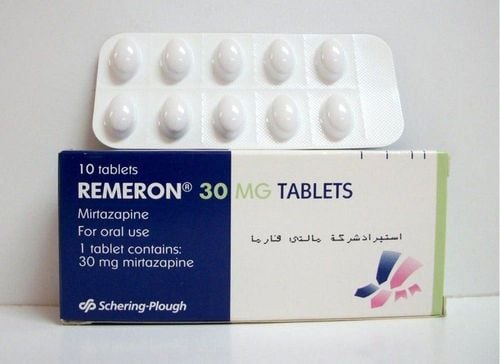This is an automatically translated article.
The article was consulted with MSc, Dr. Trinh Thi Thanh Huyen - Obstetrician and Gynecologist - Department of Obstetrics and Gynecology - Vinmec Hai Phong International General Hospital.Depression during pregnancy affects the health of both the mother and the fetus. Pregnant women with severe depression will find it difficult to take care of themselves, not eating well, not resting enough, which leads to many consequences such as premature birth, poor fetal growth, low birth weight and many complications. other postpartum.
1. What is depression?
Depression is more than just a temporary feeling of sadness, anger, or sadness after a loss. Depression alters thinking, feeling, behavior, and physical health. Depression affects relationships with family, friends, and co-workers. Depression can happen at many different times and in many different situations, including during pregnancy. Depression can be part of another disorder.The cause of depression is currently unknown, but depression is definitely a disorder of the brain in the areas that control emotions, sleep and thinking.
2. Harmful effects of depression during pregnancy
Depression during pregnancy affects the health of both the mother and the fetus. Pregnant women with severe depression will find it difficult to take care of themselves, not eating well, not resting enough, which leads to many consequences such as premature birth, poor fetal growth, low birth weight and many complications. other postpartum.3. What symptoms will pregnant women have when having depression?
Depression causes a set of physical and emotional symptoms. Of the following symptoms, if five or more are present for most of the day, daily for 2 weeks, and are required to be sad/disappointed or disinterested with all previously enjoyed activities, was depressed:Feeling sad/disappointed. Loss of interest in all previously enjoyed activities. Losing weight without dieting or gaining weight, eating less or feeling better. Sleep disturbance (sleeping too little or sleeping too much). Walking slowly or walking too quickly than usual. Fatigue or a feeling of loss of vitality. Feeling worthless or guilty. Difficulty concentrating, difficulty thinking, difficulty making decisions. Having thoughts of death or suicide. Depression has three levels: mild, moderate and severe. If you have mild depression, you can still do normal activities, even if it takes more effort. If depression is more severe, you will lose the ability to perform these activities.

Bệnh nhân trầm cảm thường xuyên có cảm xúc buồn hoặc thất vọng
4. Risk factors for depression
Risk factors that increase the likelihood of depression:Heredity: there is a family history of depression. Hormonal changes: Depression in women may be related to hormonal changes during the menstrual cycle, pregnancy, postpartum, and menopause. Stress: Circumstances that cause stress such as trauma, breakup, breakup of a relationship, unemployment, abuse, etc. can trigger depression. Other medical conditions: Some disorders can lead to or co-occur with depression, such as anxiety disorders, alcohol abuse, substance abuse, etc.
5. What to do with depression during pregnancy?

Nếu xuất hiện các triệu chứng trầm cảm khi mang thai, cần đến thăm khám bác sĩ chuyên khoa càng sớm càng tốt
Depression can be treated with psychotherapy, antidepressants, or both.
With the psychological method, the psychologist will identify the patient's problems and give suggestions for the patient to change their behavior to relieve the symptoms.
Antidepressants have a low rate of causing birth defects when used in pregnant women. Usually, the fetus is susceptible to birth defects related to treatment during the third to eighth week of pregnancy. Based on the specific patient's condition, the doctor will weigh the benefits and risks to make the most appropriate indication.
When using antidepressants, the following undesirable effects may occur:
Headache. Nausea, vomiting. Difficulty falling asleep, staying asleep, or waking up in the middle of the night. Feeling restless. Loss of sexual interest. Difficulty reaching orgasm. In addition to the doctor's instructions, pregnant women should not arbitrarily use any other drugs or support products, because of the risk of unsafety for both the mother and the fetus.
Please dial HOTLINE for more information or register for an appointment HERE. Download MyVinmec app to make appointments faster and to manage your bookings easily.
Article referenced source: Acog.org













